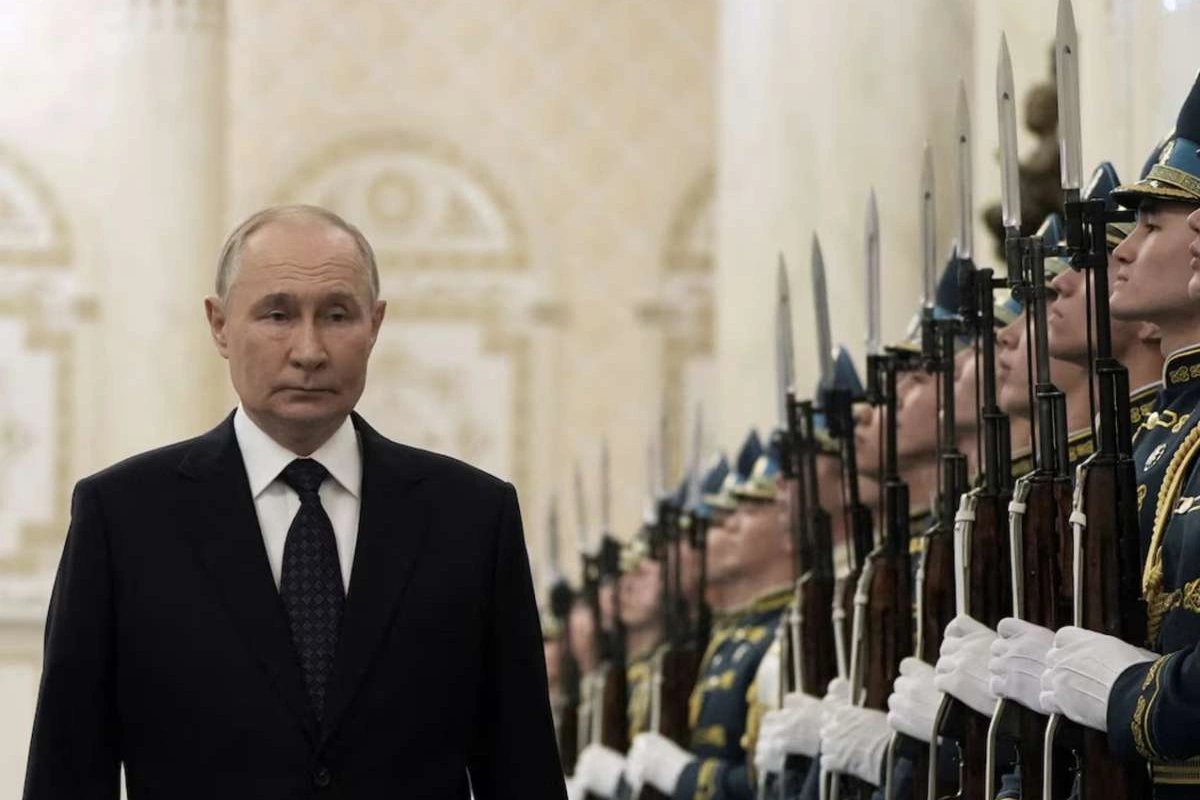
The XX Forum of Interregional Cooperation between Russia and Kazakhstan, to be held in Ufa during the Russian President’s visit, serves as a key platform for discussing and deepening the multifaceted ties between the two countries. The participation of the two nations' leaders in an online session dedicated to enhancing bilateral relations highlights the strategic importance of cultural exchange and economic cooperation.
Photo: REUTERS/Turar Kazangapov
The visit of Russian President Vladimir Putin to Kazakhstan marks an important step in further strengthening Russian-Kazakh relations. The XX Forum of Interregional Cooperation between Russia and Kazakhstan, to be held in Ufa during the Russian President’s visit, serves as a key platform for discussing and deepening the multifaceted ties between the two countries. The participation of the two nations' leaders in an online session dedicated to enhancing bilateral relations highlights the strategic importance of cultural exchange and economic cooperation. The forum not only focuses on official events but also includes cultural and business initiatives, reflecting the diverse nature of interactions between Kazakhstan and Russia. This event, therefore, becomes a pivotal element in fostering Eurasian integration and building sustainable partnerships, The Caspian Post reports.
However, within the context of this cooperation, questions remain about balancing Russia's influence in Central Asia and Kazakhstan's aspiration for greater independence in its foreign policy. Kazakhstan must strike an optimal compromise that preserves its neighborly relations with Russia while expanding its international connections and reinforcing its autonomy on the global stage.
Additionally, discussions are expected on the construction of a nuclear power plant in Kazakhstan. In October 2024, a referendum saw over 70% of participants express support for the project. As Kazakhstan actively seeks partners to implement this large-scale initiative, the country is considering the creation of an international consortium to ensure technological and political balance. A prominent player in this endeavor is Russia, represented by the state corporation Rosatom, which offers its expertise and technologies for the construction. Although Kazakhstan is exploring collaboration opportunities with companies from China, France, and South Korea, Rosatom remains in a leading position. Building a nuclear power plant would be a significant step towards energy independence and infrastructure modernization for Kazakhstan. However, the initiative also raises concerns about potential dependency on Russia in such a strategic sector. Given the increasing interdependence between the two countries, it is essential to consider the risks associated with potential sanctions. At the same time, Russia is actively seeking to expand its cooperation with Kazakhstan in high-tech and sustainable development fields.
Amid growing geopolitical tensions, Kazakhstan faces a number of critical challenges requiring a comprehensive approach to ensuring regional security and stability. The upcoming summit of the Collective Security Treaty Organization (CSTO) will serve as a vital stage in developing effective measures to address these challenges, emphasizing collective efforts and strategic cooperation among member states. The agenda is expected to include discussions on preventing citizens from traveling to countries where they might join terrorist groups, as well as intensifying mechanisms for tracking, detaining, and extraditing individuals involved in terrorism and extremism. Special attention will be paid to combating the spread of synthetic drugs, which necessitates coordinated efforts and comprehensive measures to ensure information and cyber security.
Moreover, the agenda is likely to include continued engagement with international organizations such as the United Nations, CIS, and SCO to enhance CSTO’s influence on the global stage. The adoption of a resolution on cooperation between the United Nations and the CSTO at the 79th session of the UN General Assembly marked a significant step toward strengthening international collaboration. This resolution underscores the importance of joint efforts in maintaining peace and security and opens new opportunities for deeper interaction between the two organizations.
Share on social media